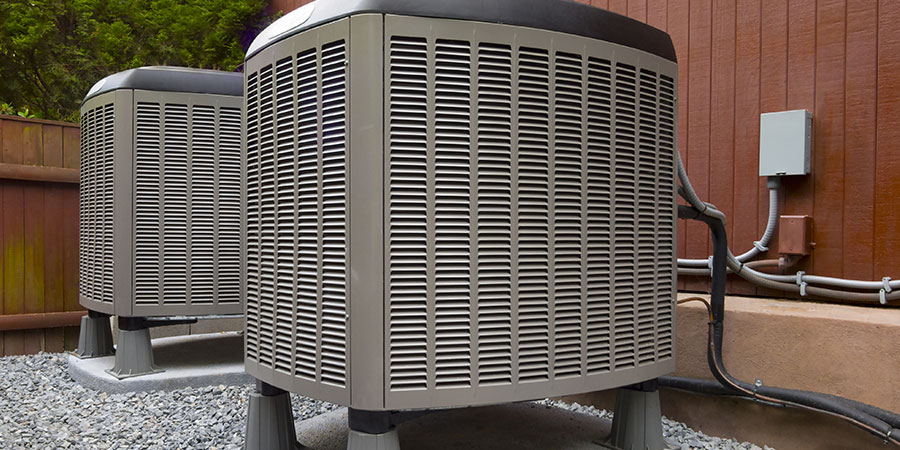Regular HVAC system maintenance is critical for extending its life, lowering your energy bills, and improving your home’s comfort. Are you wondering what are some of the things you should do to your unit to keep it in top working condition? Here they are as given by furnace service professionals:
Filter cleaning and replacement
Filters are essential to any HVAC system because they keep dust, grime, and mold molecules out of the air you and your family breathe.
Failure to keep the filters clean and operational can result in health issues and increased energy bills as air strains move through them.
Fortunately, replacing a filter is one of the simplest maintenance jobs, as you don’t need a professional to help you. All you need to do is to get them out of their compartment and clean or replace them. For the best results, you should service them every 30 days.
When replacing the filters, go with high-quality ones that will give you excellent results over an extended period and last for a long time.
Clean the heating unit before the season starts.
After a period of inactivity, furnaces can become dusty on the inside. This prevents the unit from functioning optimally, so you spend a lot of money on energy bills. To avoid this, examine the interior and cleaning everything before the heating season begins is critical.
Check the unit during summer for dust buildup, greasy residues, and even the appearance of mold. If any is present, clean it.
While at it, ensure you have a 2-foot gap around the unit to facilitate airflow and trim any plants encroaching on this space.
Undertake monthly checks
Even after serious inspection and cleaning, you must still undertake monthly checks on your appliance to ensure everything is in good working condition.
Some of the things you should do include:
- Check the thermostat’s batteries.
- Examine all vents and registers for mold.
- Examine all vents and registers for obstructions.
- Check that the condensate system is draining properly.
- Examine the flue system.
- Check that the outdoor unit is clean and on a level surface.
- Remove any clutter from around the interior components.
To repair or replace?
A well-maintained HVAC system will always outlast one that you don’t give much attention.
However, determining if yours must be replaced or repaired can be challenging, especially if you’ve recently moved into a new home.
Fortunately, there are various clues you can use to help you determine if you need to call an emergency HVAC repair service or replace the system entirely.
These clues include:
Lifespan of the appliance
Most HVAC systems have a lifespan of 10 to 25 years, depending on the manufacturer, how well it’s been maintained, and whether the system is the right size for the room.
All primary components typically have a similar lifespan, so if one breaks after ten years, you may expect the others to fail shortly after, implying that it may be time to replace the entire system.
If you have replaced several vital parts of the unit and your unit is old, you can save more money by simply replacing the entire unit.
Efficiency
Checking your energy bills is a reliable way to keep track of how your HVAC system is performing. If the bills have been consistently growing over the last few months and energy prices in general haven’t been rising, your system may be starting to struggle.
If this is the case, you will likely need to replace the system entirely.
Safety
If your HVAC equipment has become unsafe for you and your loved ones, there is no other way out other than to replace it immediately.
Signs of danger in the unit include excess moisture and leaks that can cause water damage and mold to grow in difficult-to-reach spots. The mold can harm you or your family members who suffer from allergies.
Dangerous carbon monoxide gases might also enter your home if the heat exchanger in your furnace cracks.
To stay safe, keep an eye out for damp areas and install and test a carbon monoxide detector regularly.
If the carbon monoxide levels increase, you are risking your family, and it’s time to replace the unit.
The type of coolant you are using
Older HVAC models use R-22 Freon coolant, which the government has phased out. As a result, the cost of R-22 has risen dramatically, making repairs to such systems too costly.
If your older system requires constant maintenance, upgrading to a more current system that uses R410A coolant may be worthwhile.
The cost of repairs
The expense of buying a new HVAC system might be difficult to swallow, but in some situations, the repair costs may be even more expensive, making replacement a better option.
The distinction is that a new system is a one-time payment, whereas repair bills are spread out over a longer period.
If you are confused about whether you should get a new unit or keep repairing the old one, the following calculation can assist you in making your decision: Repair costs multiplied by the age of your HVAC system.
If the cost of repairs is less than the cost of a new system, the repairs are worthwhile. If it’s higher, it’s probably time to replace it.
You also should consider replacing the unit if you call a furnace repair service Port Jefferson every month. If this is the situation, your system is probably nearing the end of its useful life, and it’s time to replace it.
However, if you’ve only had to make minor repairs in the past, future issues are likely to be repairable, so you don’t need to get a new unit.
Comfort levels
If your HVAC unit struggles to keep up with temperature changes, leaving your home too hot or chilly for extended periods, there is clearly a problem.
Most of the time, at this point, it will be wise to replace the unit.

